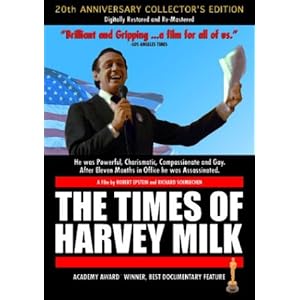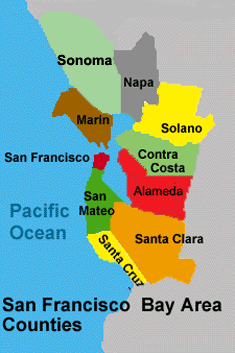
Years ago, when Harvey Milk first ran for office in the Castro District, he lost the first couple of times out at the polling stations.
That is a little known footnote in San Francisco (and LGBT) history.
The reason he failed to nab the popular vote first-time out in the heady days of open-and-out gay activism?
Quite simply, the city districts were structured in such a way, that the election process did not favor the homosexual community.
However, once the Castro District was rezoned, Milk was able to snap up the majority - in neighborhood where the voters were mostly gay or homo-friendly - go figure!
Now, the Asian and Latino communities in San Mateo County are crying foul for the same reason.
The two ethnic groups make up one quarter of the county's nearly 72,000 residents and a slightly smaller share of its voting-age population.
So, what is the fuss all about?
The two minorities are lamenting the fact that only one Latino - and no Asians-Americans - have held seats on the five-member Board of Supervisors since 1995.
According to a spokesperson for the disgruntled voters, the at-large system - combined with alleged "racially polarized voting" - unlawfully deprives Latino and Asian members in the community to voice their preferences meaningfully with ballot-in-hand.
For this reason, a lawsuit - based on voting rights - has been filed against San Mateo County.
The plaintiffs are demanding that the Judge presiding over the proceedings declare the upcoming county-wide elections illegal.
Pursuant to state law, attorney Robert Rubin (Lawyers' Committee for Civil Rights) has argued that new election districts should include a majority-Latino and majority-Asian American district.
"And, perhaps there should be a third district, in which two groups together form a majority," he noted, in an after-thought.
In response, County Counsel John Beiers has stated for the record in no uncertain terms, that he has not seen any evidence that the at-large system weakens the voting power of Latinos or Asian Americans.
The underlying arguments that the suit is based on refers to a 2002 California voting-rights Law that prohibits at-large elections in areas with a history of racially polarized voting - such as in the case where the majority voted as a bloc - against minority candidates and minority interests.
The litigants are optimistic about their chances of prevailing in court.
After all, an appeals court upheld the law in a suit against Modesto, in 2006.
On the heels of the ruling, the city switched from an at-large system to district elections.
In defense, opponents argue quite vigorously that at-large elections encourage voters to consider diverse views of an entire city or county.
But, critics pooh pooh that notion, for good reason.
In their view, the at-large elections allow a majority - whether racial or political - to control a governing board and ignore minority concerns.
We'll see which way the wind blows, after the issues are hashed out in court.
http://www.thetattler.biz

Beachfront property worth fighting for!
No comments:
Post a Comment